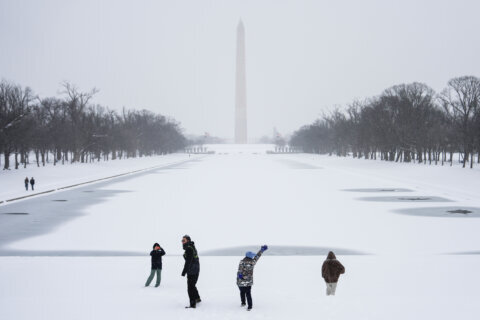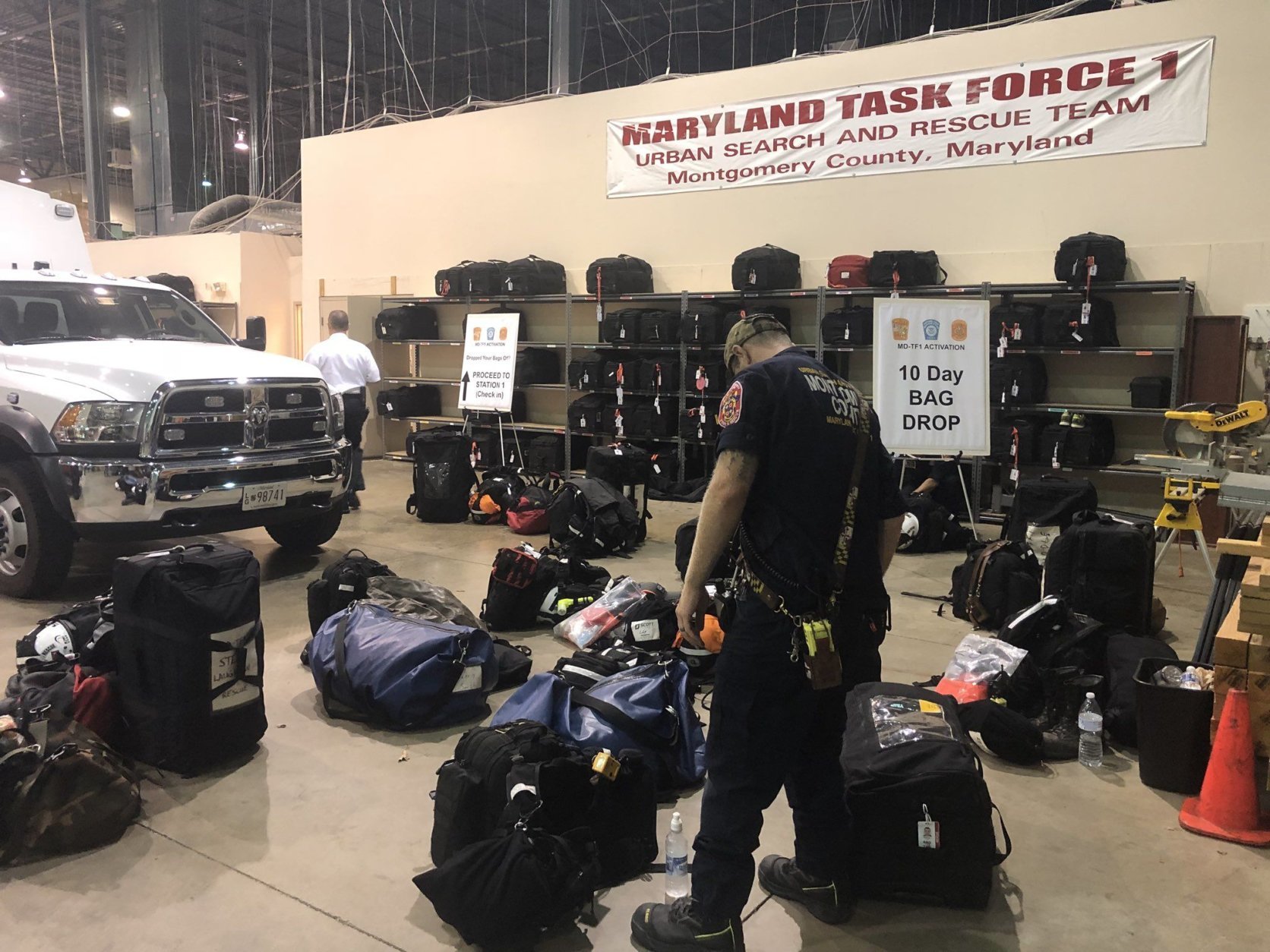
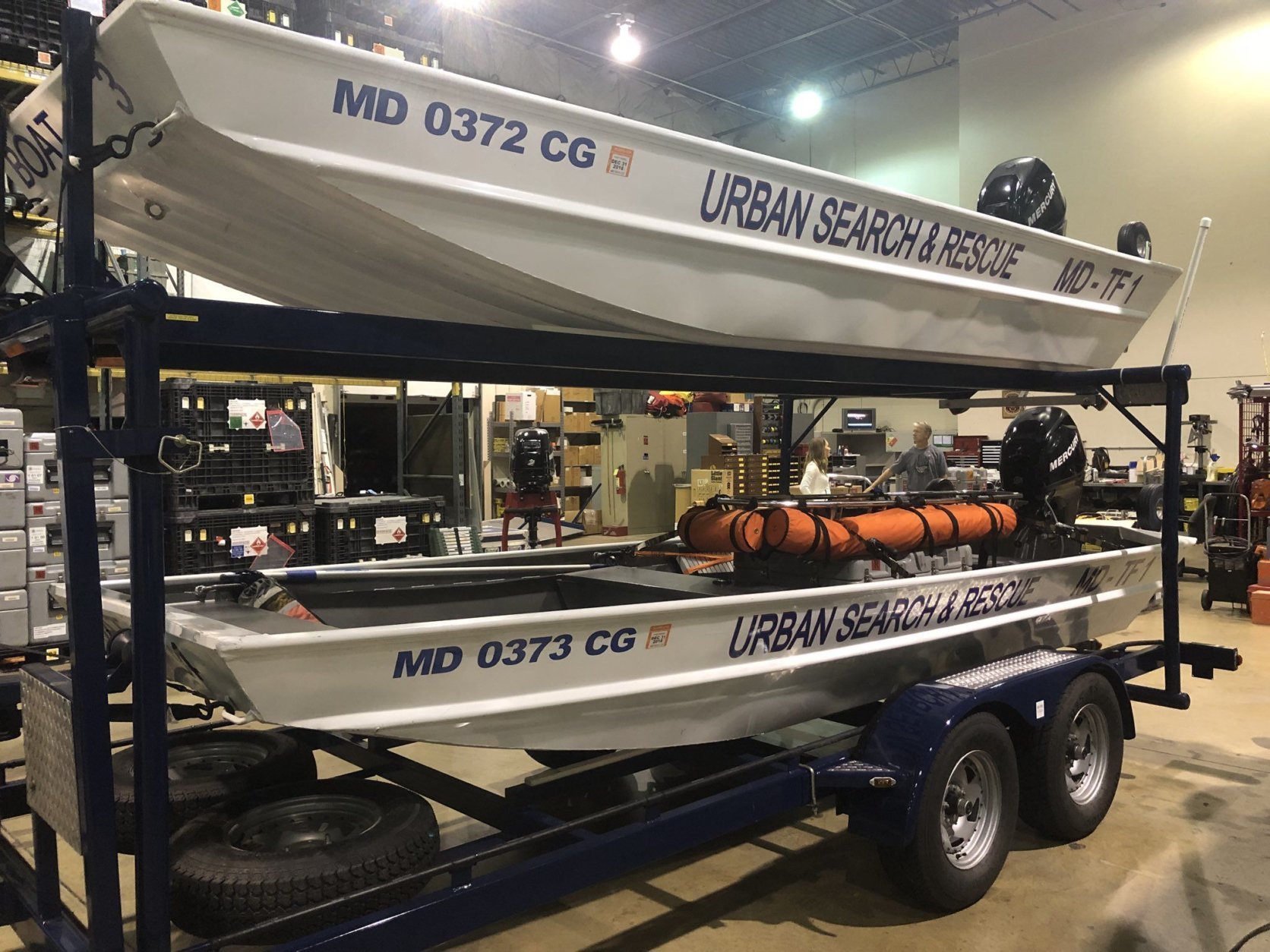
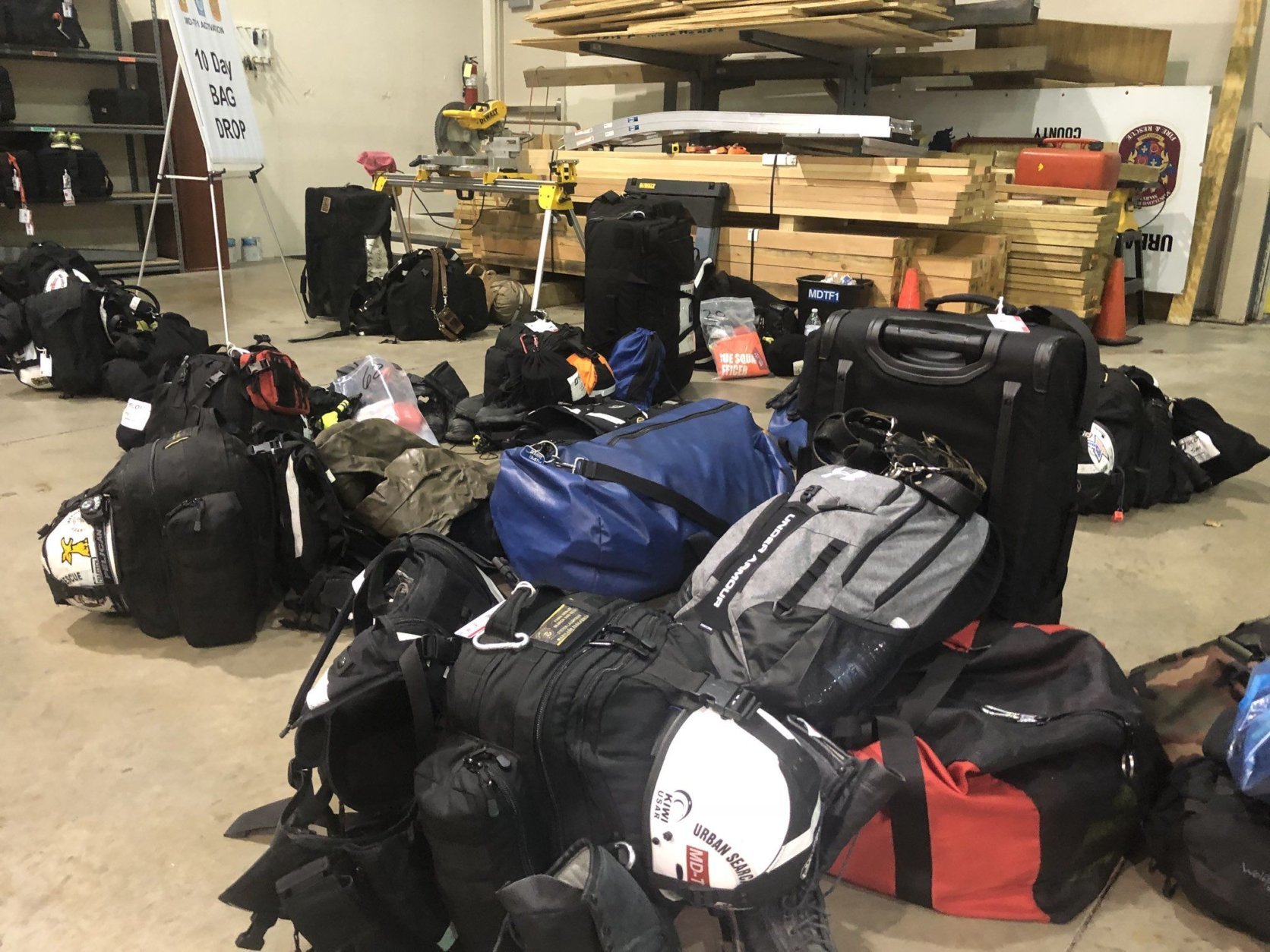
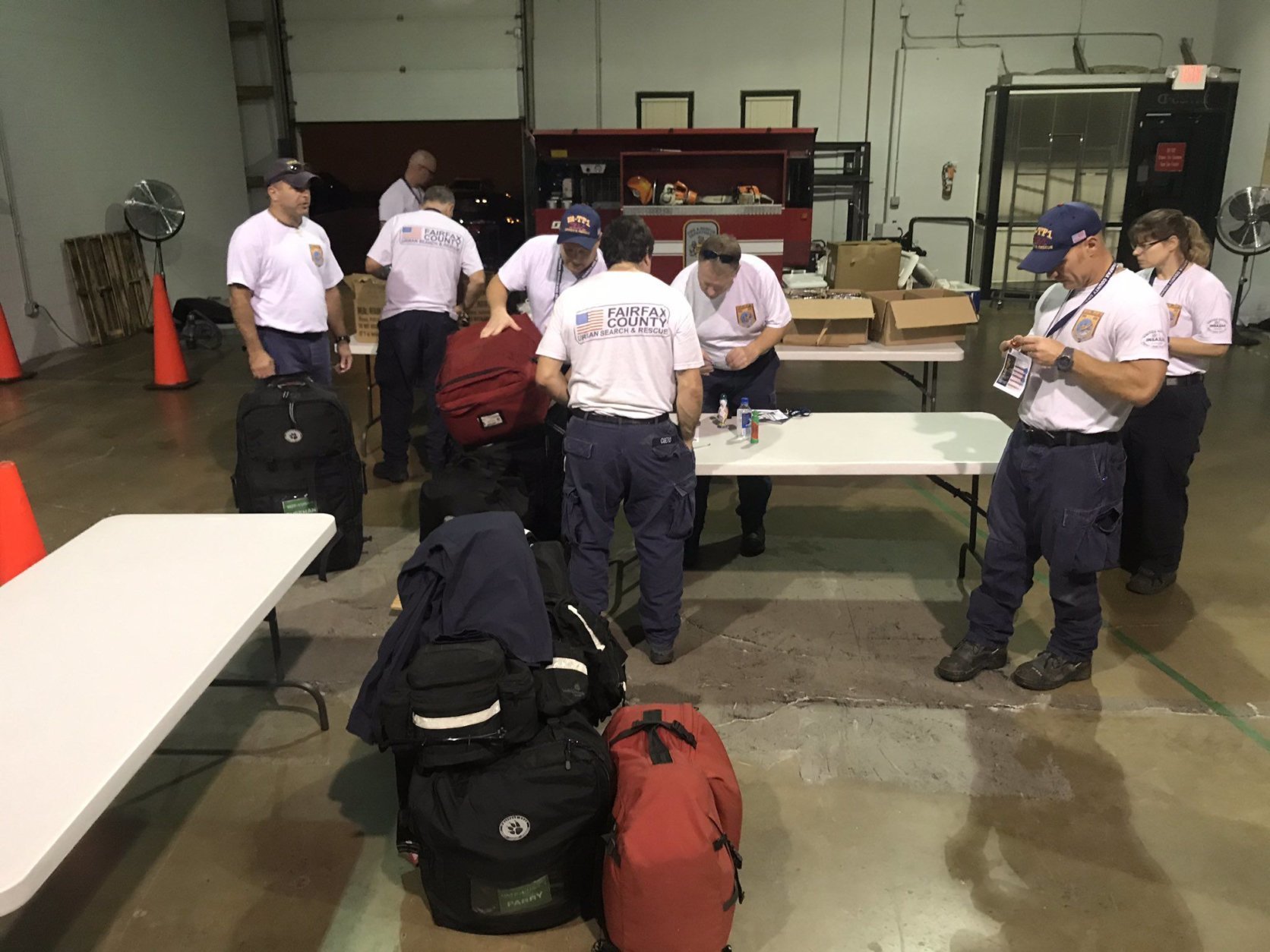
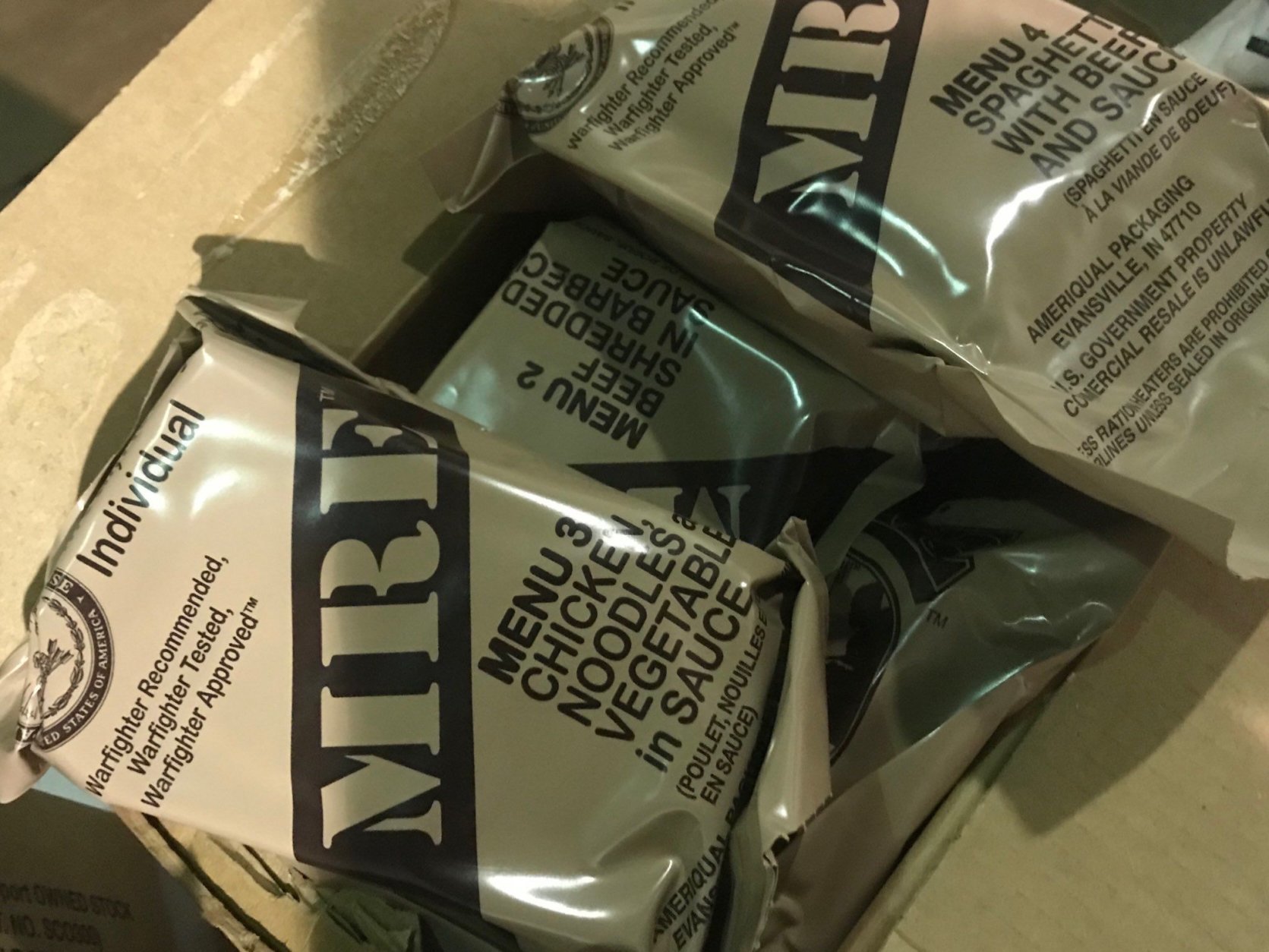
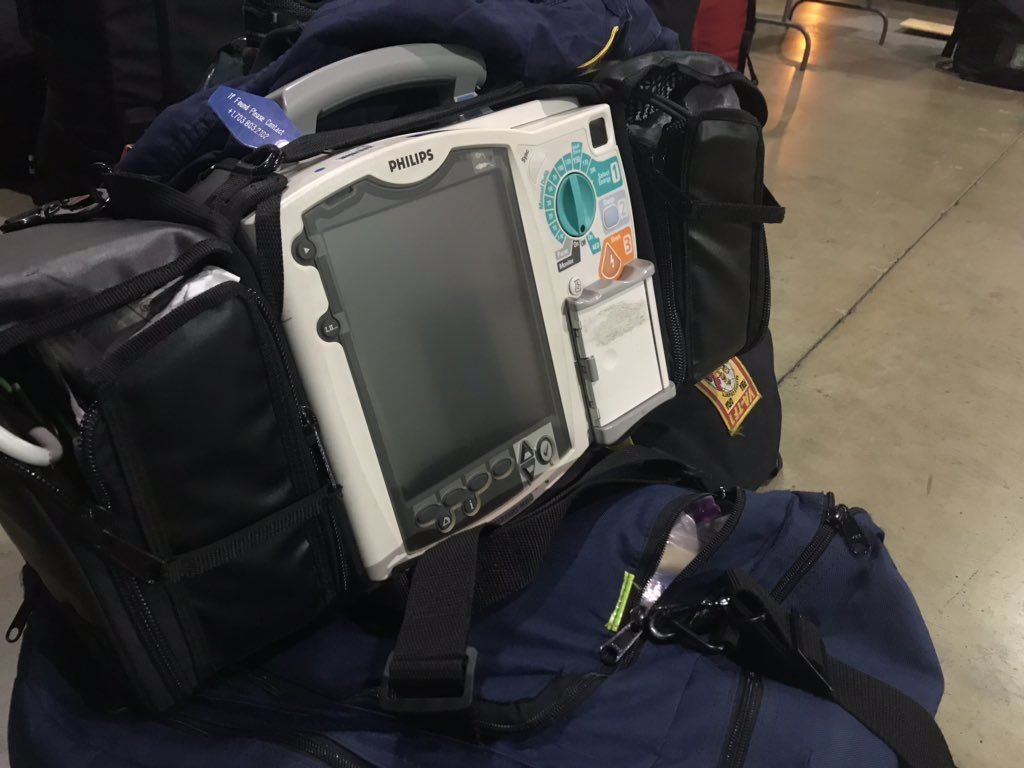
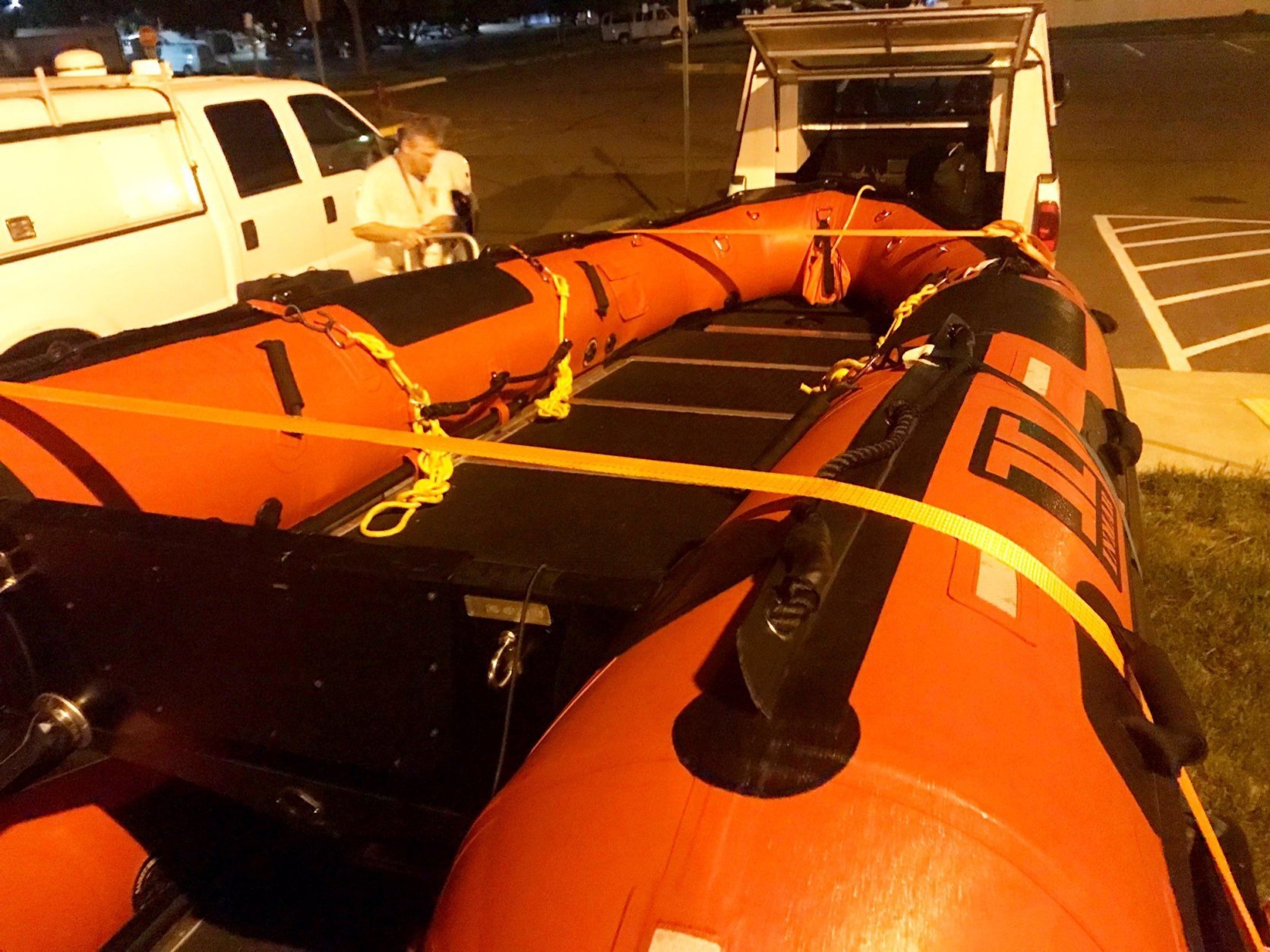
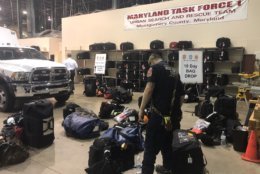
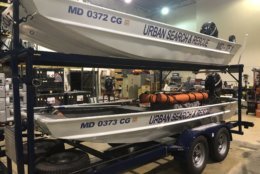
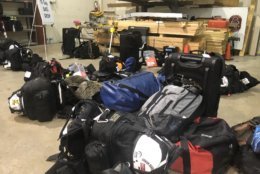
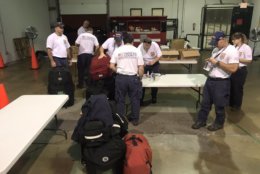

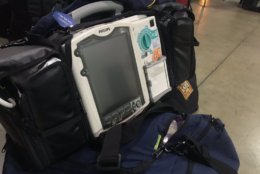
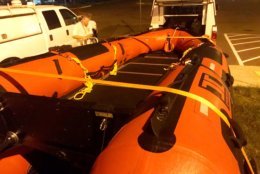
WASHINGTON — After dealing with Florence, it’s back to the field for Maryland and Virginia urban search and rescue teams as yet another hurricane looms for the Southeast U.S.
With Hurricane Michael poised to strike the Gulf Coast as a powerful storm, the federal government is already pre-positioning resources to help communities at the brunt of floods, storm surge and powerful winds. On Monday night, Maryland and Virginia elite water rescue teams were ordered by FEMA to join a multistate response to the oncoming storm.
The Montgomery County-based Maryland Task Force One and the Fairfax County-based Virginia Task Force One deployed for the Southeast Tuesday morning, anticipating operations in Florida, Alabama or Georgia. Each team takes with it water-ready rescue equipment, boats and medical equipment.
“This is a front-end loading for FEMA, getting these resources in place, and, of course, we will support the larger and local efforts should the need arise for any kinds of flooding,” said Pete Piringer, spokesman for Montgomery County Fire and Rescue.
Equipment packed and loaded. Teams will head out around 6a for 10-14 day deployment #HurricaneMichael @WTOP pic.twitter.com/aerHkEfIPA
— Melissa Howell (@Mhowell003) October 9, 2018
After a morning briefing, a 16-person team set out from a Montgomery County warehouse bound for the Southeast, with boats, light support vehicles and everything else needed to rescue people trapped in both swift-moving and flat floodwaters. Team members have bags packed and ready to go around-the-clock, Piringer explained, and will take with them enough supplies to be self-sufficient for up to two weeks in a flood zone.
They’re expected to arrive in the region by Wednesday morning, when Michael is expected to be approaching landfall as a potentially catastrophic Category 3 major hurricane. Even though the narrative often focuses on wind, water is often the deadliest threat posed by tropical cyclones — a hazard officials confront with a network of 28 urban search and rescue teams across the country, of which MD-TF1 and VA-TF1 are a part.
The water rescue team is off! They’ll be in Florida by Wednesday #HurricaneMichael @WTOP pic.twitter.com/uzOsqmvBdo
— Melissa Howell (@Mhowell003) October 9, 2018
“We’re trained the same. We all have standards that we’re living up to. We know each other’s capabilities,” said Lt. Michael Eddy, with Fairfax County’s search and rescue team.
Two Fairfax County water rescues teams, each with seventeen rescue workers, also set out for the Gulf coast from their headquarters in Chantilly. They took with them four 16-foot steel boats equipped for flat water rescues and two boats designed for rescues from rougher waters.
Both the Maryland and Virginia teams will ride out the storm in the landfall region, awaiting further instruction on where and how their resources are needed. They’ll be joining teams from Texas, Indiana, Ohio and Missouri in addition to local emergency responders.
Eddy said that FEMA officials are “already in the planning stages of finding out where we’re going, what the river stages look like, what they’re anticipating the flood levels to be once the hurricane comes ashore.”
The multifaceted threat posed by hurricanes make first response an arduous challenge, especially for stricken residents in urgent need of medical care. On the medical front, search and rescue teams are ready for anything, with medics joining each rescue squad to take care of victims as well as team members in the event that local hospitals are overwhelmed or disabled after the storm.
“Any time you’re in a bad environment, the main priority is to get them out of that situation as best we can,” said Eddie Thurston, a paramedic with VA-TF1 who will be doubling on this deployment as a boat operator. “Our ultimate goal is to get them to care as quickly as possible, but in a flood even that can certainly take some time.”
Teams are bringing with them full life-support capabilities and advanced medicine for dealing with pain, cardiac events and a variety of medical emergencies.
“We’re ready to deal with any medical emergency with the gear we take,” Thurston said.
At least 10 inches of rain are in store for a stretch of the Florida shore from Apalachicola to Panama City, where current forecasts show Michael coming ashore on Wednesday with winds in excess of 120 miles per hour.
Florida Gov. Rick Scott called Michael a “monstrous hurricane” with a devastating potential from high winds, storm surge and heavy rains. He declared a state of emergency for 35 Florida counties from the Panhandle to Tampa Bay, activated hundreds of Florida National Guard members and waived tolls to encourage those near the coast to evacuate inland.
WTOP’s Neal Augenstein, WTOP’s Melissa Howell and The Associated Press contributed to this report.


